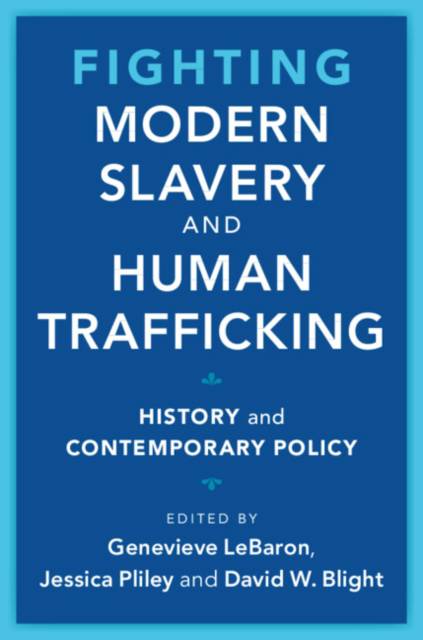
- Afhalen na 1 uur in een winkel met voorraad
- Gratis thuislevering in België vanaf € 30
- Ruim aanbod met 7 miljoen producten
- Afhalen na 1 uur in een winkel met voorraad
- Gratis thuislevering in België vanaf € 30
- Ruim aanbod met 7 miljoen producten
Zoeken
Fighting Modern Slavery and Human Trafficking
History and Contemporary Policy
€ 145,95
+ 291 punten
Omschrijving
Over the last two decades, fighting modern slavery and human trafficking has become a cause célèbre. Yet large numbers of researchers, non-governmental organizations, trade unions, workers, and others who would seem like natural allies in the fight against modern slavery and trafficking are hugely skeptical of these movements. They object to how the problems are framed, and are skeptical of the "new abolitionist" movement. Why? This book tackles key controversies surrounding the anti-slavery and anti-trafficking movements head on. Champions and skeptics explore the fissures and fault lines that surround efforts to fight modern slavery and human trafficking today. These include: whether efforts to fight modern slavery displace or crowd out support for labor and migrant rights; whether and to what extent efforts to fight modern slavery mask, naturalize, and distract from racial, gendered, and economic inequality; and whether contemporary anti-slavery and anti-trafficking crusaders' use of history are accurate and appropriate.
Specificaties
Betrokkenen
- Uitgeverij:
Inhoud
- Aantal bladzijden:
- 284
- Taal:
- Engels
- Reeks:
Eigenschappen
- Productcode (EAN):
- 9781108830621
- Verschijningsdatum:
- 1/07/2021
- Uitvoering:
- Hardcover
- Formaat:
- Genaaid
- Afmetingen:
- 152 mm x 229 mm
- Gewicht:
- 585 g

Alleen bij Standaard Boekhandel
+ 291 punten op je klantenkaart van Standaard Boekhandel
Beoordelingen
We publiceren alleen reviews die voldoen aan de voorwaarden voor reviews. Bekijk onze voorwaarden voor reviews.






